Fictive Witness is a series of lecture performances produced in collaboration with Tali Keren that took place between 2018-2020 at the Goethe-Institut New York. For each performance, we invited a different scholar or activist to present a layer of narration over our experimental documentary film, Save the Presidents, that speaks to themes beneath its surface. The same material was plumbed and reconfigured to engage with issues including Indigenous erasure through the erection of monuments and the racialized histories of integration and segregation in the US public school system. A talk-back with the audience followed each performance.

Fictive Witness: Branding the Dream with legal scholar Kendall Thomas, collaboration with Tali Keren, 2018, still from 90-minute live lecture-performance featuring musicians Braxton Cook and Bryan Carte, Goethe-Institut, New York, NY
Fictive Witness: Branding the Dream with legal scholar Kendall Thomas, collaboration with Tali Keren, 2018, 2m2s video clip from 90-minute live lecture-performance featuring musicians Braxton Cook and Bryan Carte, Goethe-Institut, New York, NY
Legal scholar Law Kendall Thomas’s lecture-performance “Branding the Dream” focused on the U.S. cultural and political powers of an “imaginary” American presidency. Drawing inspiration from the visual landscape of Save the Presidents, Thomas’s performance used words, music, and an eclectic range of references to stage an encounter between two presidencies and two conflicting and convergent visions of the American Dream.
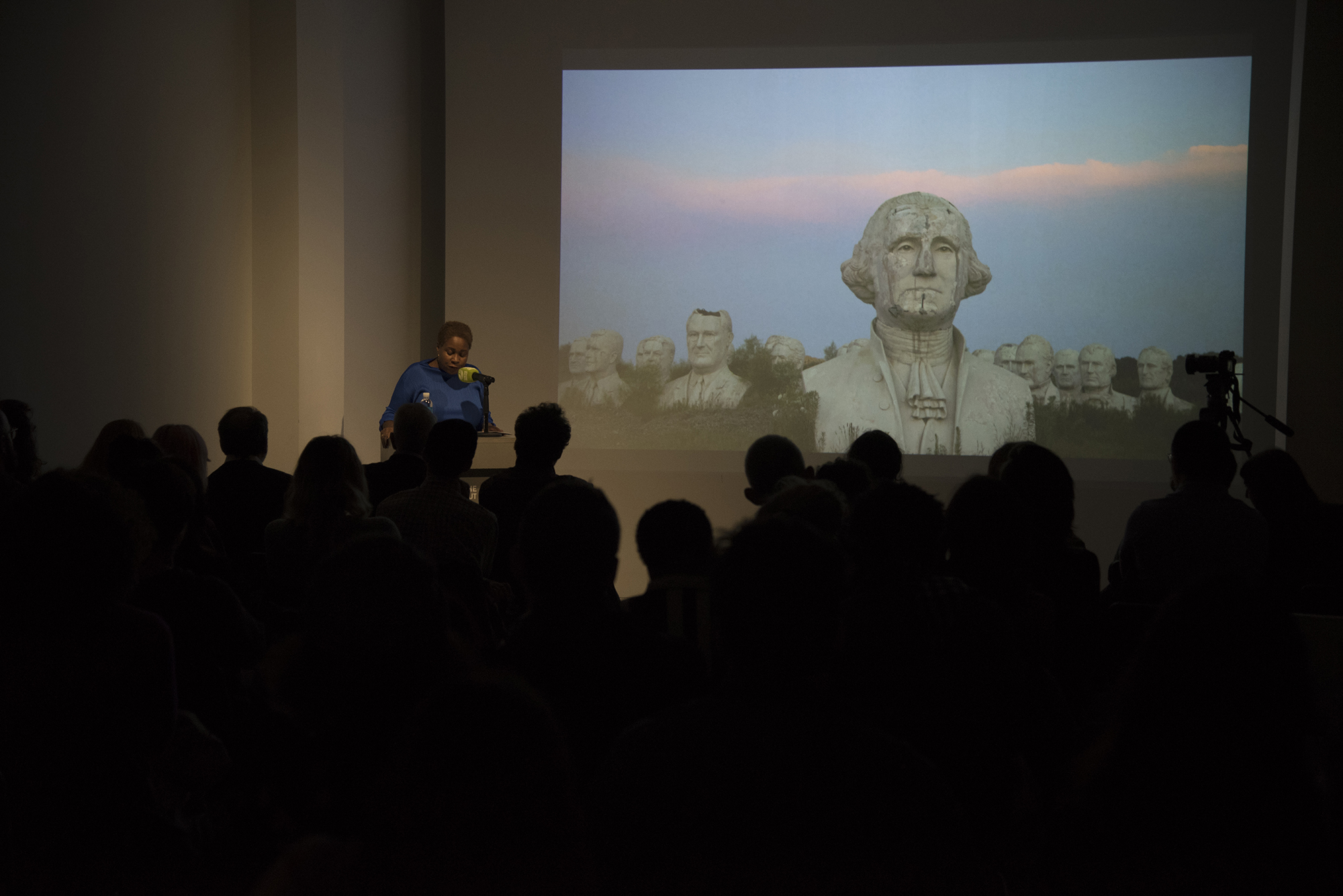
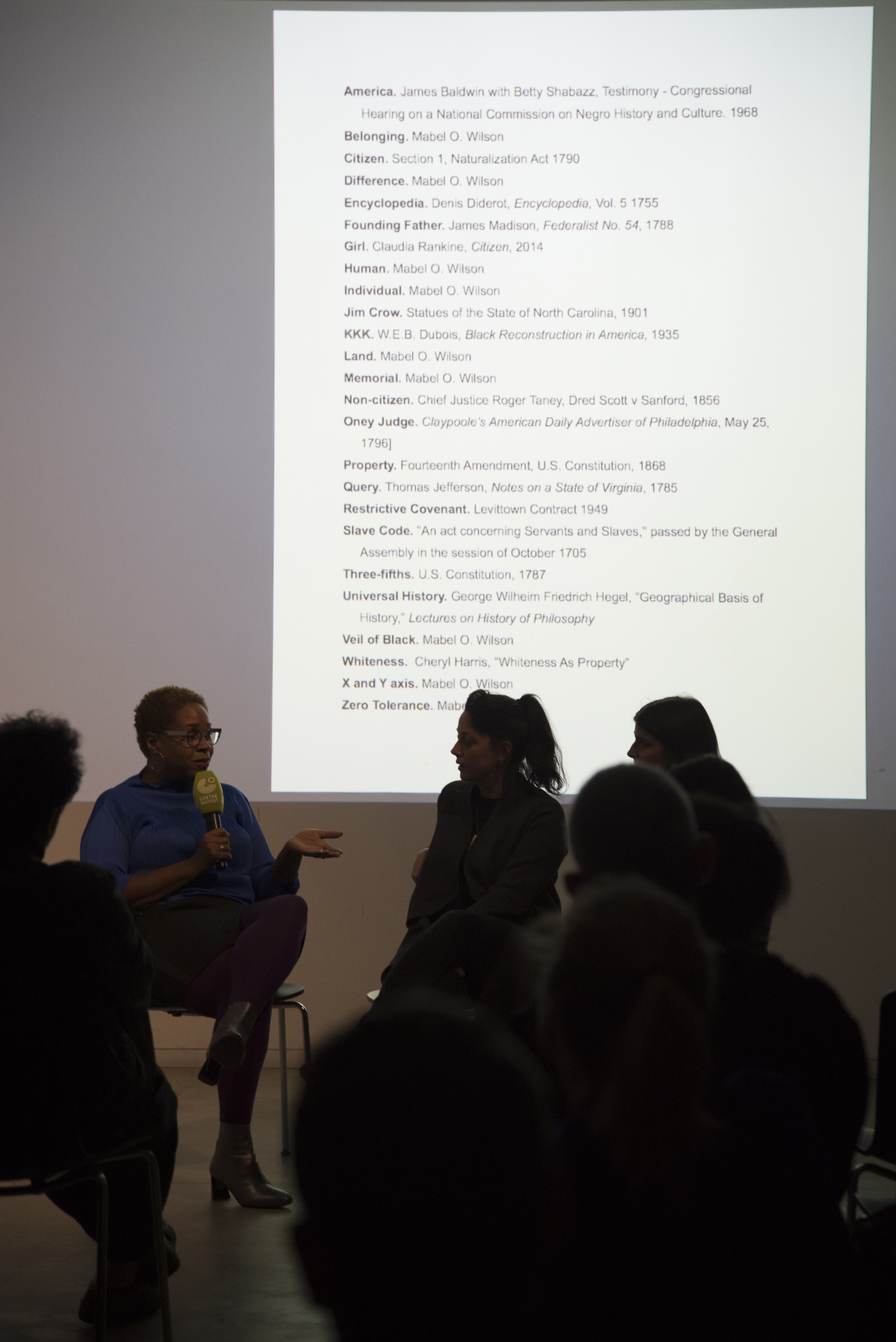
Fictive Witness: Dead Presidents: A Lexicon of Land Race and Nation with architectural theorist Mabel O. Wilson, collaboration with Tali Keren, 2018, still from 90-minute live lecture-performance, Goethe-Institut, New York, NY
Architectural theorist Mabel Wilson’s lecture-performance centered on a series of alphabetical entries relating to property and personhood within American ideology. As the film screened, Wilson presented a colonial history of how the American landscape was cultivated, specifically referring to the use of enslaved labor to build national monuments that purport to embody “freedom.”
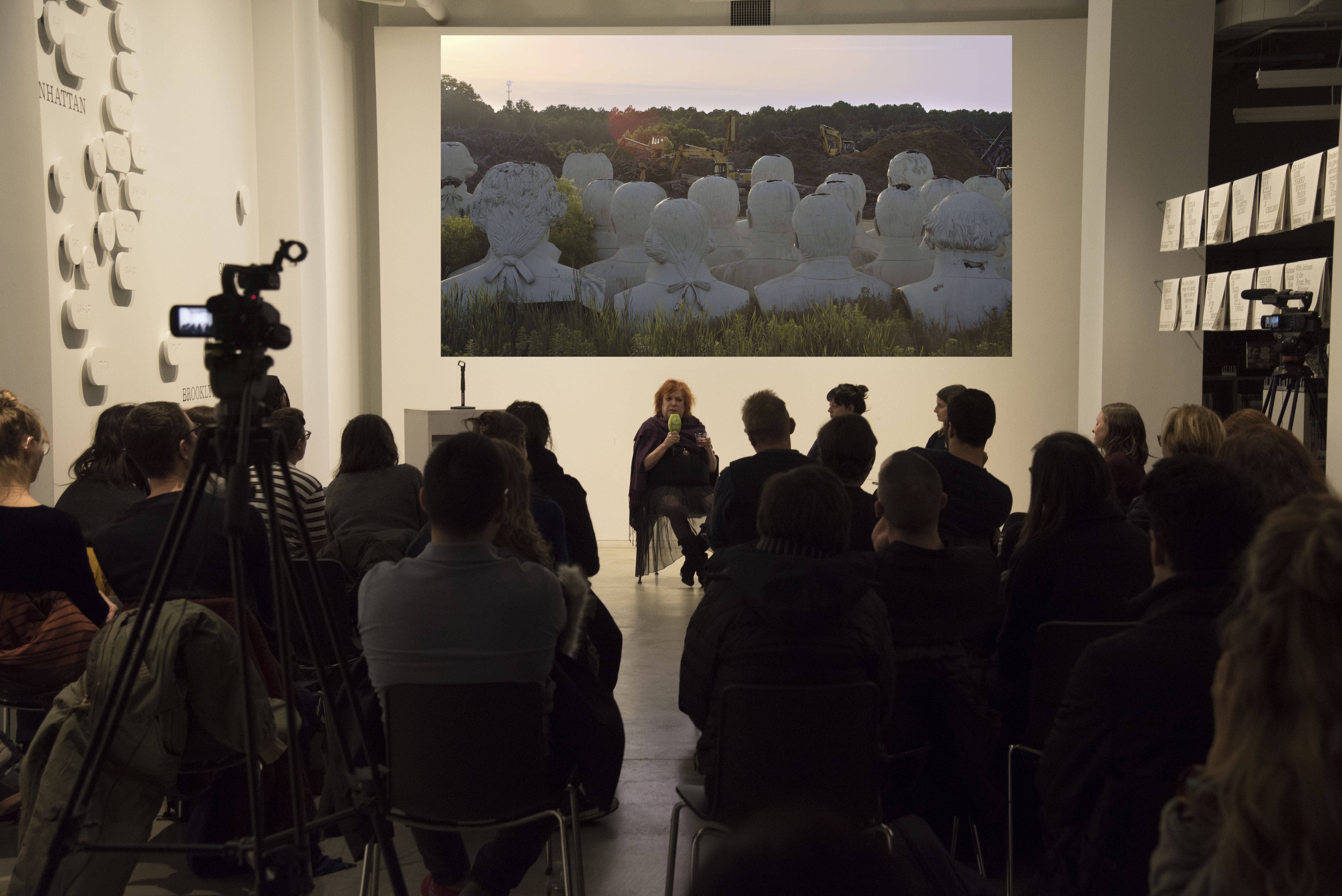
Fictive Witness: On the Imaginary Domain, Or Who Gets to Be a Person? with philosopher Drucilla Cornell, collaboration with Tali Keren, 2018, still from 90-minute live lecture-performance, Goethe-Institut, New York, NY
Philosopher Drucilla Cornell’s lecture-performance explored labor, gender politics in the workplace, and the right of each person to identify in their own way through the lens of ethical feminism. Cornell’s lecture contrasted the content of the film, pointing to the absence of women within the lineage of presidents employed to shape American national identity.
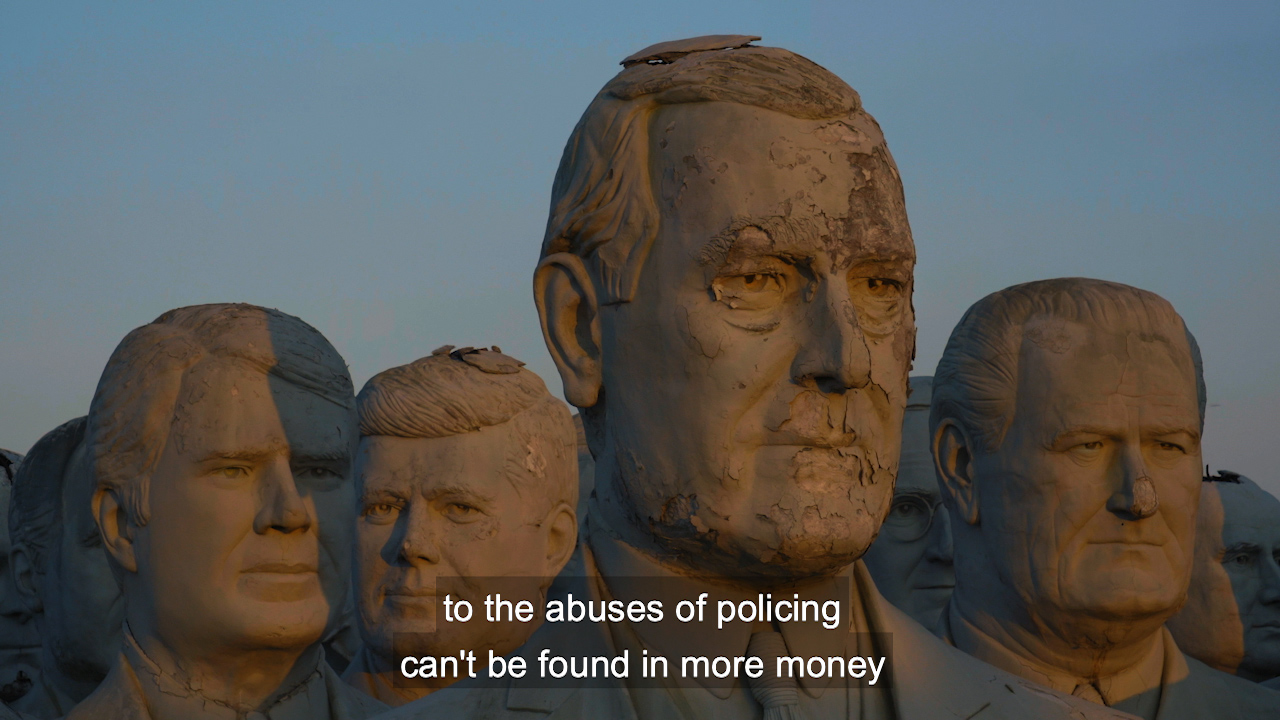
Fictive Witness: The Imperial Presidency and Police Power with sociologist Alex S. Vitale and historian Nikhil Pal Singh, collaboration with Tali Keren, 2020, still from 90-minute online lecture-performance, ASL interpretation by Patrick Michael Coble, Goethe-Institut, New York, NY
For “The Imperial Presidency and Police Power,” sociologist Alex S. Vitale and historian Nikhil Pal Singh explored the histories of policing in the United States in relation to race, presidential politics, and calls to defund the police.
Fictive Witness: Accounting for Integration with education scholar Noliwe Rooks and student activist Whitney Stephenson, collaboration with Tali Keren, 2020, 16-minute video intervention, live closed-captioning by Dana Strovers, Goethe-Institut, New York, NY
Education scholar Noliwe Rooks’ lecture-performance “Accounting for Integration” asked viewers to consider the settler-colonial origins of the public school system and the emotional and psychological tolls of integration on historically marginalized groups. This performance was followed by a presentation with student activist Whitney Stephen, the co-founder of Teens Take Charge, a student-led advocacy group actively working to desegregate the NYC public school system.

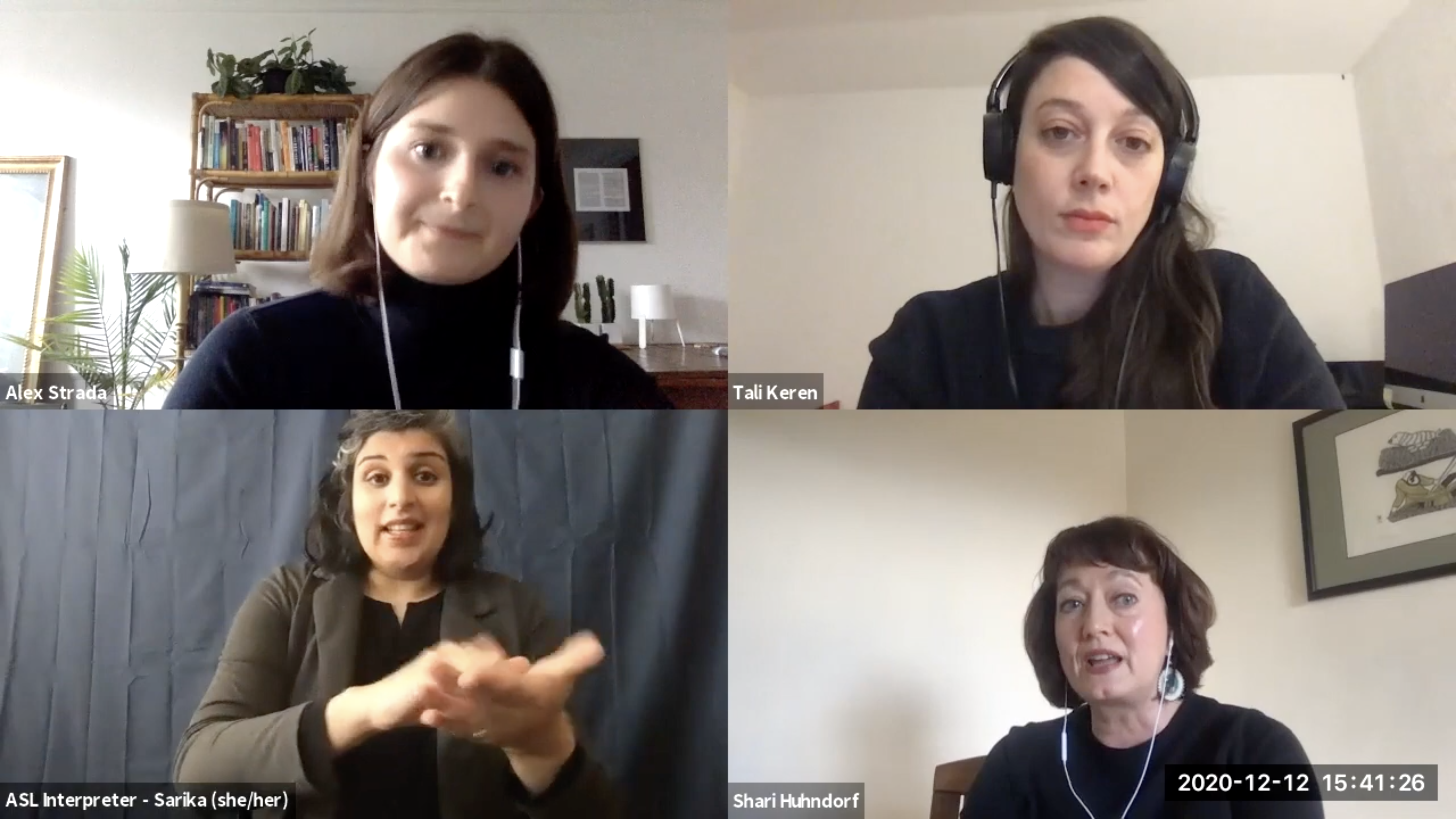
Fictive Witness: Monuments, Memory and The Art of Indigenous History with Native Studies scholar Shari Huhndorf, collaboration with Tali Keren, 2020, ASL Interpretation by Sarika Meht, still from 90-minute online lecture-performance, commissioned by the Goethe-Institut, New York, NY